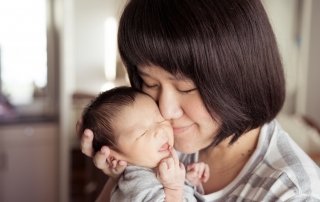Anxiety During Pregnancy: Options for Treatment
Anxiety symptoms are relatively common during pregnancy but typically undiagnosed and undertreated. A recent study of 2793 women observed that 9.5% of women meet criteria for generalized anxiety disorder (GAD) at some point during their pregnancy. The highest rates of GAD were observed in the first trimester (7%). Only 2% of women met criteria for GAD in the second trimester, and 3% in the third trimester.








